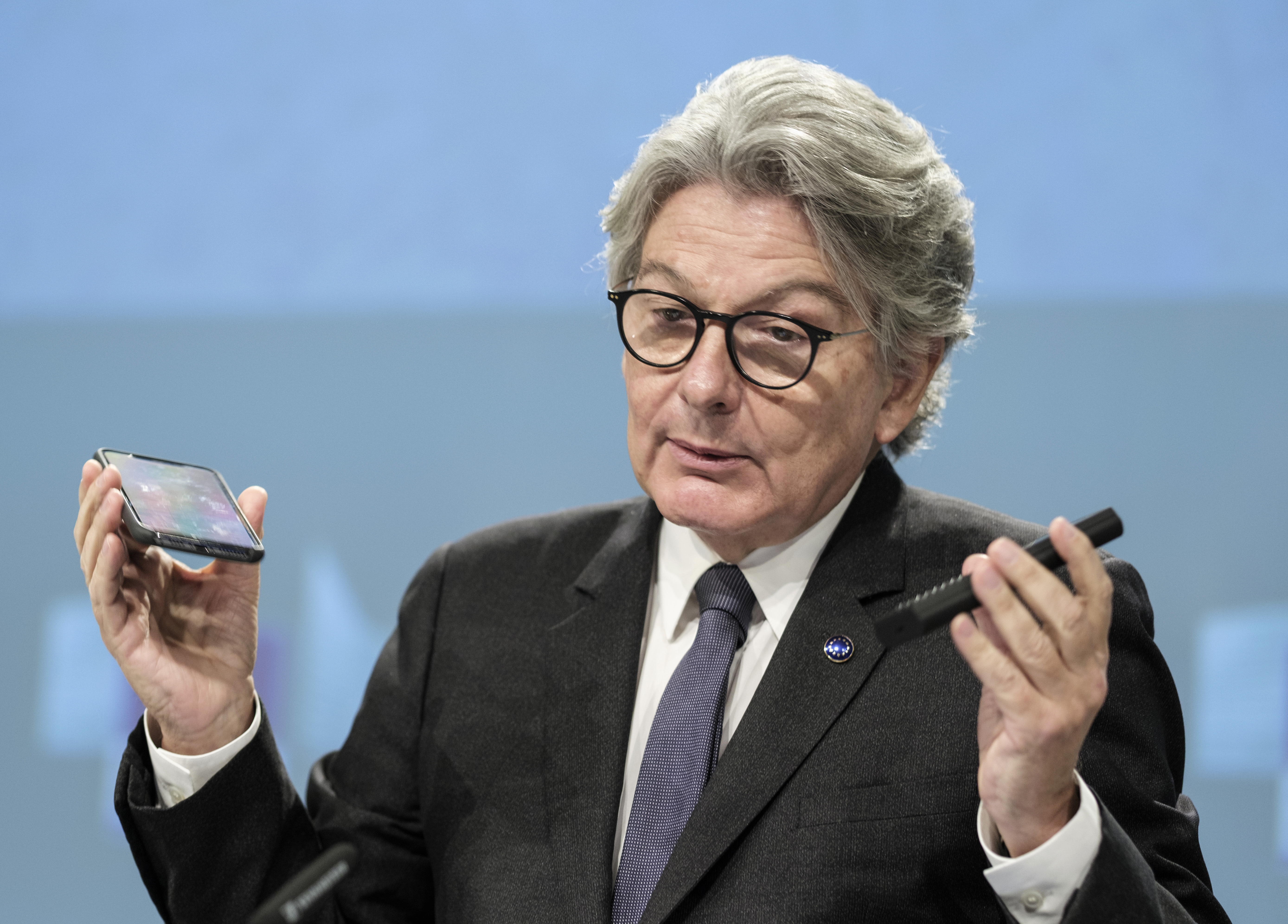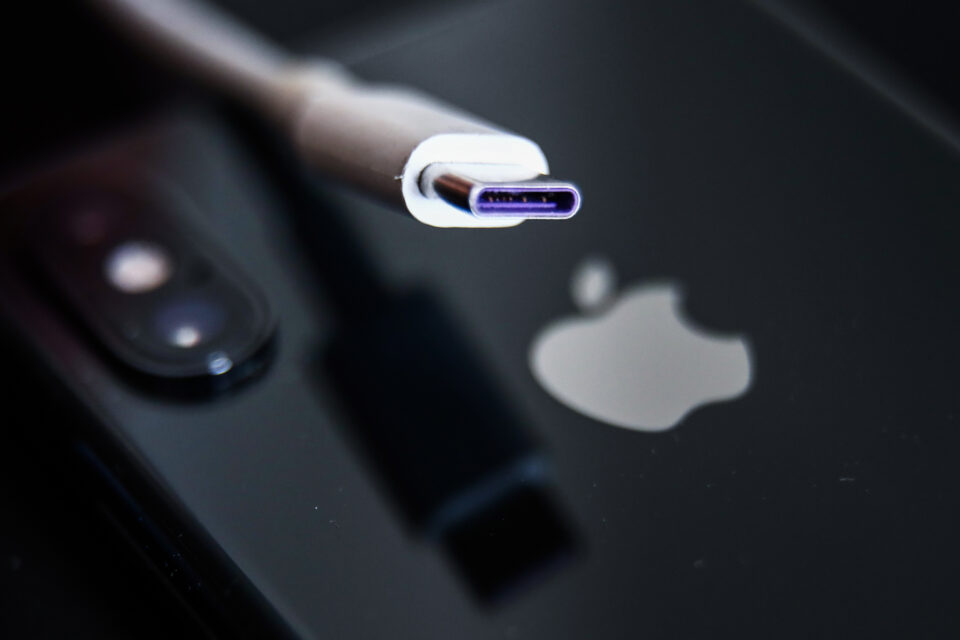Apple and other smartphone makers will be required to support USB-C as part of a single charging standard for mobile devices across the European Union by as early as September 2024.
European Union officials said they inked a provisional agreement on Tuesday that will require a uniform charging cord in the 27-nation bloc.
It was part of a wider effort to make products sold in the EU more sustainable, cut down on electronic waste and eliminate "cable clutter", Margrethe Vestager, European Commission Vice President said.
READ MORE: How your iPhone will change in 2022

"European consumers were frustrated with multiple chargers piling up within their homes," Alex Agius Saliba, the European Parliament's lead negotiator, said at a press briefing in Brussels.
"Now, they will be able to go with a single charger for all portable electronics, which is an important step to increase consumer convenience."
Under the legislation, according to a release, "mobile phones, tablets, e-readers, earbuds, digital cameras, headphones and headsets, handheld video game consoles and portable speakers that are rechargeable via a wired cable will have to be equipped with a USB Type-C port, regardless of their manufacture."
The coming rules will apply to new small and medium-sized electronics sold in the EU.
While the rules apply only to devices sold in the European single market, like the EU's strict privacy regulations, they could end up becoming a de facto standard for the rest of the world.

Chargers that support fast charging will also be required to adopt the same charging speeds. The measure does not affect wireless charging technologies.
Consumers would have to be able to buy a device without a bundled charger if they choose, which the EU estimates will save consumers €250 million ($371 million) a year.
"One in every three chargers that is bundled with these products is never opened from its original packaging," according to the European Commission's impact assessment, Saliba said.
The new rule stands to bring major changes for iPhone users.
Apple didn't immediately respond to a request for comment. But during the legislative process, Apple told EU officials the proposed rule would render obsolete as many as a billion devices and accessories that use the company's proprietary Lightning connector, according to an EU Parliament report.
A 2021 study cited in the same report found that iPhones with the Lightning connector accounted for 18 per cent of new mobile phone sales in 2019, with 44 per cent using USB-C and 38 per cent using the older USB Micro-B connector.
The writing has been on the wall for the end of Apple's Lightning connector for some time. Apple already uses the USB-C standard in some Macs and iPads and is reportedly testing iPhone models that swap out the Lightning port.
But Tuesday's announcement could accelerate Apple's shift to USB-C and potentially lead to the company dropping Lightning around the world for good.
Efforts to mandate a single standard for charging in Europe date back more than a decade. Officials at one point had secured industry support for the USB Micro-B standard, but a voluntary agreement among major manufacturers to that effect expired in 2014 and was not replaced. The coming law to require USB-C, by contrast, is among the first of its kind.
Tuesday's announcement followed trilateral negotiations by the European Commission, Parliament and Council. The charging measure must still receive final approval before going into effect, but the process is largely considered a formality.

